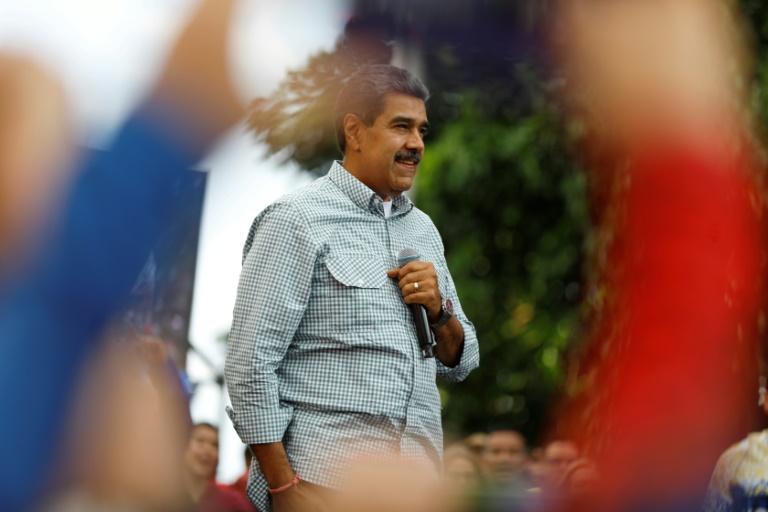
Opposition leader Maria Corina Machado vowed Monday to remain in Venezuela a day after her colleague and presidential candidate Edmundo Gonzalez Urrutia took up asylum in Spain claiming post-election repression.
“I have decided to stay in Venezuela and take part in the struggle from here while he (Gonzalez Urrutia) does it from abroad,” Machado, who is in hiding, told reporters via videoconference.
Gonzalez Urrutia, 75, arrived in Madrid late Sunday after weeks in hiding following a July 28 presidential election that the opposition insists he won but was claimed by incumbent strongman Nicolas Maduro.
“We all know that Edmundo Gonzalez Urrutia is the elected president of Venezuela… whether he is in Venezuela or anywhere else in the world,” said Machado.
The fact that he is now abroad “does not change anything: legitimacy is maintained, the strategy is the same,” she insisted.
After his arrival in Spain, Gonzalez Urrutia said he had decided to leave “so that things can change and so we can build a new stage for Venezuela.”
Machado had said he left the country because “his life was in danger”
“Only the policy of dialogue will enable us to reunite as compatriots,” Gonzalez Urrutia wrote in a letter addressed to Venezuelans and posted on social network X.
“I have taken this decision thinking of Venezuela and that our destiny as a country cannot, must not, be that of a conflict of pain and suffering.”
Gonzalez Urrutia had replaced Machado on the ballot at the last minute after she was prevented from running by institutions loyal to Maduro, accused by observers of human rights violations.
Venezuela’s regime-loyal CNE electoral authority declared Maduro the election winner but the opposition cried foul and much of the international community has refused to accept the result.
– At risk of prison –
Authorities issued an arrest warrant for Gonzalez Urrutia, who Maduro has said belongs behind bars along with Machado.
She remains in hiding, save for leading a handful of anti-Maduro protests since the disputed vote.
Gonzalez Urrutia left Venezuela after ignoring three successive summons to appear before prosecutors, having argued that doing so risked his freedom.
Prosecutors had opened an investigation against Gonzalez Urrutia for crimes related to his insistence that he was the rightful election victor.
Charges include usurpation of public functions, forgery of a public document, incitement to disobedience, sabotage, and association with organized crime.
He risks a prison sentence of 30 years.
The charges stem from the opposition decision to publish its own tally of polling station-level ballots cast, which it says showed Gonzalez Urrutia winning about two-thirds of votes.
Venezuela’s electoral authority has said it cannot provide a breakdown of the election results, blaming a cyber attack on its systems.
Observers have said there is no evidence of such hacking.
Post-election violence in Venezuela has claimed 27 lives and left 192 people injured, while the government says it has arrested some 2,400 people.
The office of the prosecutor of the International Criminal Court in The Hague, said it was monitoring “current developments” in Venezuela on top of an ongoing investigation into crimes against humanity possibly committed by government forces during opposition protests in 2017 when more than 100 people were killed.
The office said in a statement it was also “analyzing information transmitted to it regarding allegations of crimes that may fall within the jurisdiction of the Court.”
The office underscored the “importance of ensuring that the rule of law is adhered to… and emphasize that all persons must be protected from violations that may constitute Rome Statute crimes.”
After Venezuela’s last election, in 2018, Maduro also claimed victory amid widespread accusations of fraud.
With the support of the military and other institutions, he managed to cling to power despite international sanctions.
Maduro’s tenure since 2013 has seen GDP drop 80 percent in a decade, prompting more than seven million of the country’s 30 million citizens to migrate.
jt/mlr/fb/dw
EMEA Tribune is not involved in this news article, it is taken from our partners and or from the News Agencies. Copyright and Credit go to the News Agencies, email news@emeatribune.com Follow our WhatsApp verified Channel





